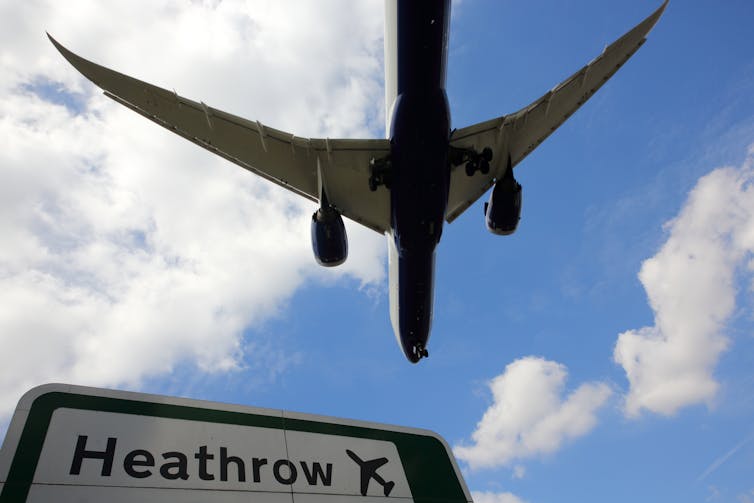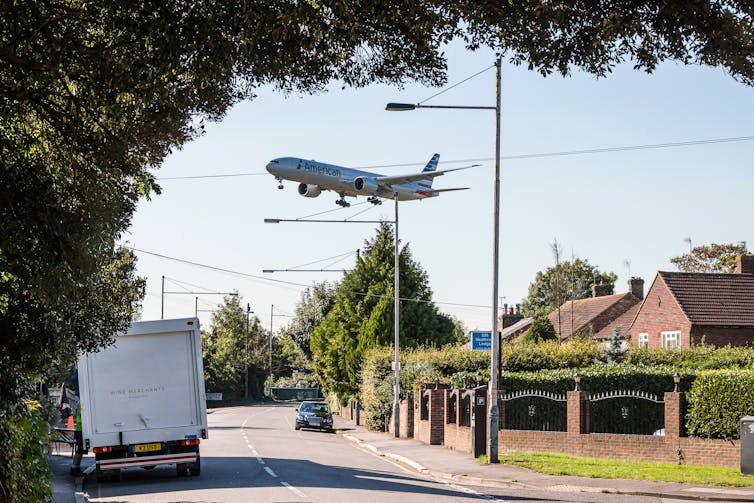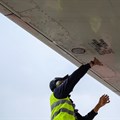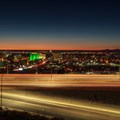Heathrow's third runway is expensive, polluting and unequal - why the poor will lose out

shutterstock.com
London Heathrow is the busiest airport in the UK with 48m passengers beginning or ending their journeys in London, and an additional 28m making interconnecting flights to other destinations. A third runway will increase the total capacity to 130m (that’s a 71% increase) and the number of flights will increase to 740,000 a year (up 56%).
But who will be the new passengers flying to and from LHR?
My analysis of National Travel Survey data and the Civil Aviation Authority’s Air Passenger Surveys shows that just under half of the UK population has flown in the last year (47%), and this figure has been stable over the last 15 years. Most of those that do fly make one or two trips a year (31%). This means that 10% of the population makes about 60% of all flights, and as might be expected these people are mainly from the highest income groups.
The richest 10% make nearly seven times as many trips by air as the poorest 10% of the population. The inequality in air travel in the UK is far higher than any other form of travel, with the exception of high-speed rail (more than ten times). Figures for the other forms of transport are much lower, with the difference for car travel being less than three times. When it comes to buses, the poor make far more trips than the rich – the poorest 10% making 109 bus trips a year, as compared with 29 bus trips a year for the richest 10%.
Some might argue that low-cost airlines have helped rebalance this inequality, but the evidence would suggest overall that cheaper flights have enabled those already flying to travel more frequently and possibly to save money.
Inequality is important as it reflects on societal values and the argument that society as a whole should gain from public investment. But it is equally important to identify who are the winners and who are the losers. This is about fairness and justice.
Counting the costs
This is particularly the case when large amounts of public money are involved. The new runway is estimated to cost £14bn, with a similar amount being needed to improve road and rail links to the airport. A substantial part of this funding will come from the government and Transport for London.
And, despite making limited use of the new runway, low-income people will be affected by it indirectly through additional CO₂ emissions. Overall, the richest 10% of households produce three times the levels of CO₂ emissions than those from the poorest 10% of households. For transport, the difference is between seven to eight times and ten times for aviation.
New runway capacity at Heathrow will increase this difference, as more rich people fly further and more frequently. Local pollutants (like nitrogen oxides) and the noise impact are also likely to increase from the additional planes (and traffic). This means that it will become much harder to meet CO₂ reduction targets and improve local air quality – and air quality around Heathrow is already very poor.

Air quality around Heathrow is already poor. Jaroslaw Kilian / Shutterstock
Even the argument about the importance of increased airport capacity to the local and national economies is weak. Business air travel accounts for about 20% of all passengers in the UK, with the figure for Heathrow being higher (30%). But this is not a growing market. It has been relatively stable in recent years, as the growth in air travel has come from leisure travel and visiting friends and relatives.
In addition, UK residents spend more overseas than others do coming to the UK. In 2016, UK residents made 71m overseas visits and the total spend was £43.8bn. Whereas there were 38m visits to the UK and the total spend was £22.5bn.
![]() The clear conclusion is that on grounds of inequality, environment and spend, building additional airport capacity at Heathrow does not add up, as it will enable the richest 10% to fly even more and spend their money overseas. It will be the poorest 10% that stay in the UK, and they will suffer from even higher levels of CO₂ emissions and poorer levels of air quality.
The clear conclusion is that on grounds of inequality, environment and spend, building additional airport capacity at Heathrow does not add up, as it will enable the richest 10% to fly even more and spend their money overseas. It will be the poorest 10% that stay in the UK, and they will suffer from even higher levels of CO₂ emissions and poorer levels of air quality.
This article was originally published on The Conversation. Read the original article.
Source: The Conversation Africa

The Conversation Africa is an independent source of news and views from the academic and research community. Its aim is to promote better understanding of current affairs and complex issues, and allow for a better quality of public discourse and conversation.
Go to: https://theconversation.com/africaAbout David Banister
David Banister, Emeritus Professor of Transport Studies, University of Oxford









